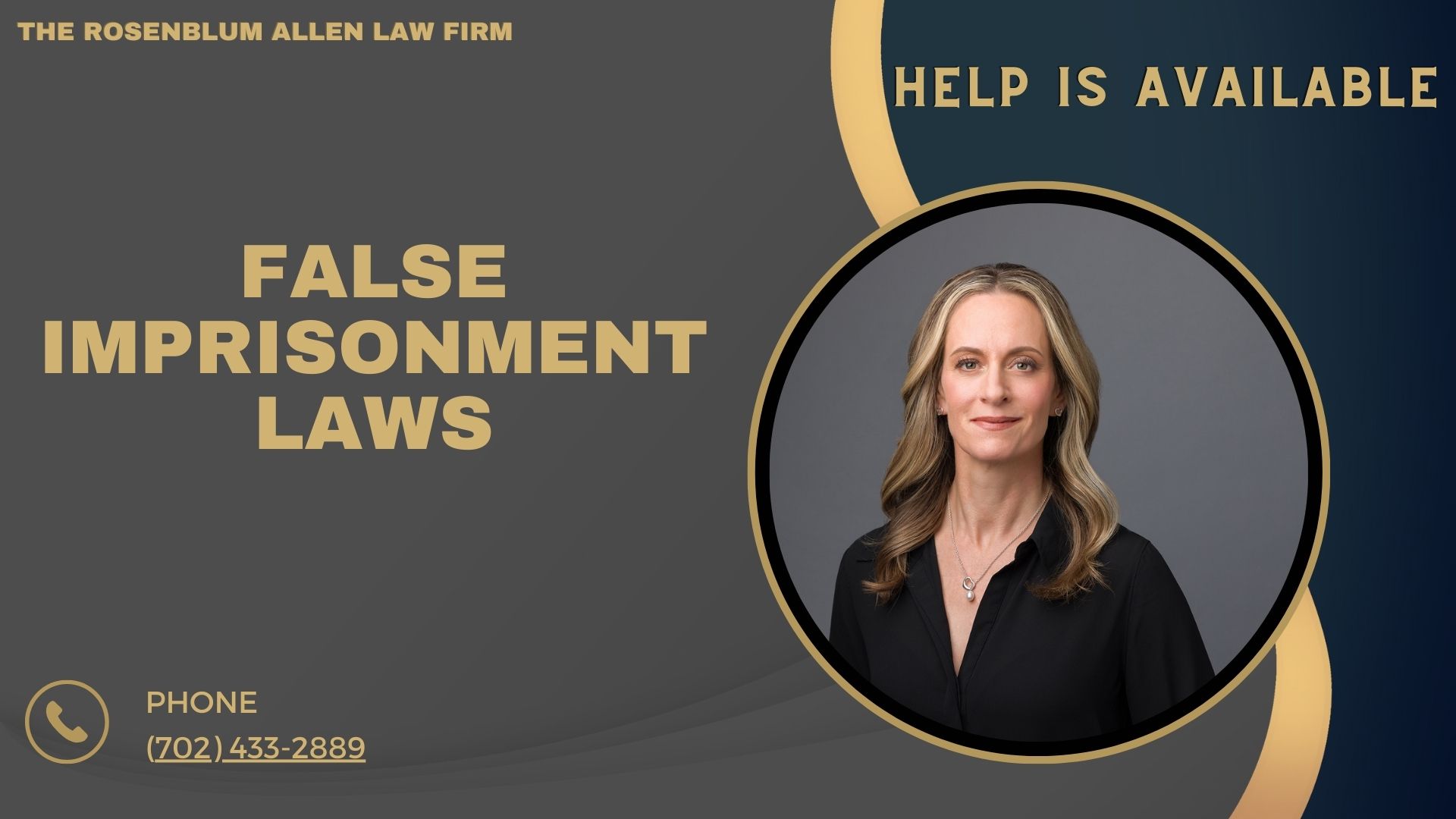Definition of False Imprisonment
False imprisonment is the intentional restraint of a person. It has no lawful justification. This restraint can take various forms, including physical barriers, threats, or coercion.
Distinction between False Imprisonment and Other Legal Terms
It’s key to tell false imprisonment from other legal ideas. These include kidnapping or unlawful detention. These terms may overlap. But, false imprisonment is about the illegal restraint of a person’s freedom.
Elements of False Imprisonment
Certain elements must be present to establish a claim of false imprisonment. Both plaintiffs and defendants in such cases need to understand these elements. It is crucial.
Intentional Restraint
False imprisonment requires intentional acts. They result in the confinement or restraint of another person. This means the restrainer must have intended to confine the victim.
Lack of Consent
The confinement must occur without the consent of the victim. It is not false imprisonment if the victim willingly agrees. They agree to the confinement or restraint. Consent can be express or implied, but it must be given voluntarily and without coercion.
Awareness of Confinement
The victim must be aware of the confinement or restraint when it occurs. Even if the victim does not realize they are being confined. False imprisonment can still be proven. This is true if they would have been aware of it normally.
These elements form the basis of a false imprisonment claim. They provide a framework for judging if unlawful confinement has occurred. The following section will explore the various acts that may constitute false imprisonment.

Acts Constituting False Imprisonment
False imprisonment can take different forms. It involves acts or behaviors that unlawfully restrict a person’s freedom. Understanding these acts is essential for recognizing when false imprisonment has occurred.
Physical Restraint
The most obvious kind of false imprisonment involves holding someone against their will. This could include holding them down, tying them up, or blocking their exit from a space.
Threats of Harm
False imprisonment can also occur through threats of harm or force. For example, if someone threatens to harm a person unless they stay in a place, that is false imprisonment. This is true even if no physical restraint is involved.
Deception or Fraud
False imprisonment may involve tricking someone. This keeps them in a place or makes them think they cannot leave. This could include false claims of authority. They could also include misleading statements about their ability to leave.
Abuse of Authority
They may abuse their power to confine someone unlawfully. These individuals have authority, such as law enforcement officers or security guards. This can happen through the misuse of handcuffs. It can also happen through detention in a police station without legal justification. Or through other forms of abuse.
Recognizing these acts is crucial. They help identify false imprisonment and find legal recourse. In the next section, we will cover the laws for false imprisonment.

Legal Principles Governing False Imprisonment
You must understand the legal principles behind false imprisonment. This is crucial for navigating related legal matters well. Let’s explore these principles in detail.
Civil vs. Criminal False Imprisonment
False imprisonment can be both a civil wrong (tort) and a criminal offense. In civil cases, the victim may seek payment for damages. The damages resulted from the false imprisonment. In criminal cases, the perpetrator may face charges. The state imposes penalties.
Reasonableness of Detention
Courts assess how reasonable the confinement was. They do this when deciding if false imprisonment happened.
The assessment considers factors such as:
The duration and manner of confinement
The reason for the restraint
The victim’s perception of the situation.
Duration and Scope of Confinement
How long and how broad the confinement is are crucial. They determine how severe the false imprisonment is and the right legal remedies. Severe confinement is more likely to be deemed false imprisonment. This is true than minor restrictions on freedom.
These legal principles provide a framework. They help test false imprisonment cases and ensure justice. Next, we will explore the defenses for those falsely imprisoned.

Defenses Against False Imprisonment Claims
They may assert various defenses. These can challenge the accusations. Understanding these defenses is crucial for building a solid legal strategy. Let’s explore some common defenses:
Consent
It may serve as a defense if the victim consented to the confinement or restraint freely, without coercion. But, the consent must be genuine and freely given to be valid.
Legal Authority
People may justify their actions. They claim to have had legal authority to detain or restrain the victim.
Self-Defense or Defense of Others
The confinement may have been necessary to protect oneself or others from harm. It may be a valid defense against false imprisonment claims. But, the level of force used must be proportionate to the threat faced.
Justification of Confinement
In some cases, individuals may argue that the confinement was justified. It was justified under the circumstances. This could include detaining someone suspected of a crime. Or, preventing them from causing harm to themselves or others.

Remedies and Damages for False Imprisonment
Victims of false imprisonment may get remedies and damages. They compensate for the harm caused by the unlawful confinement. Let’s explore the options available for seeking redress:
Compensatory Damages
Compensatory damages aim to reimburse the victim. They cover the losses and expenses from the false imprisonment. This could include pay for emotional distress. It could also cover lost income. It could pay for medical expenses and other losses, which can be seen or unseen.
Punitive Damages
In cases where the defendant’s conduct was very bad, punitive damages may be awarded. They punish the wrongdoer and deter similar conduct. Punitive damages convey that such behavior will not be tolerated in society.
Injunctive Relief
Besides to money, victims of false imprisonment may seek injunctive relief. This relief stops the defendant from doing the same thing again. This could include restraining orders. Or, court orders to stop the defendant from specific actions.
By pursuing these remedies and damages, victims of false imprisonment can seek justice. They can hold the responsible parties accountable for their actions. In the next section, we’ll explore how false imprisonment laws may vary by jurisdiction.

False Imprisonment Laws by Jurisdiction
Laws on false imprisonment vary by jurisdiction. This includes differences in statutory definitions, legal interpretations, and case law. You must understand these differences. They are key for navigating false imprisonment cases well. Let’s explore how false imprisonment laws may differ by jurisdiction.
Variations in Statutory Definitions
Different jurisdictions may have varying definitions of false imprisonment outlined in their statutes. The core elements of false imprisonment are consistent. But, specific language and criteria may differ based on local laws.
Differences in Legal Interpretations
Courts in different jurisdictions may interpret and apply false imprisonment laws differently. Past court decisions, judge interpretations, and culture can influence how false imprisonment cases are decided.
Case Law Precedents
Case law precedents were set by courts in each place. They can greatly impact false imprisonment cases. Previous court decisions set legal precedents. They guide future rulings on similar issues. They shape how false imprisonment laws are interpreted and applied.

Reporting and Seeking Legal Assistance
Victims must report false imprisonment. They must seek legal help. This is crucial for them to assert their rights and pursue justice. Let’s explore the recommended procedures for reporting incidents and obtaining legal help:
Steps to Take if Falsely Imprisoned
Document the Incident: Write down details of the incident, including dates, times, locations, and any individuals involved.
Seek Medical Attention: If you suffered any injuries or trauma during the incident, seek medical assistance promptly.
Report to Authorities: Contact local law enforcement to report the false imprisonment incident and file a police report.
Gather Evidence: Collect evidence supporting your claim, such as witness statements, surveillance footage, or physical evidence.
Consult with Legal Counsel: To understand your legal options, seek advice from an experienced attorney specializing in false imprisonment cases.
Importance of Seeking Legal Counsel
Understanding Your Rights: An attorney can explain your rights under false imprisonment laws and help you navigate the legal process.
Building a Strong Case: Legal counsel can assist in gathering evidence, preparing legal arguments, and representing you in court to build a strong case.
Negotiating Settlements: Attorneys can deal with the opposing party or their insurance company to secure fair compensation for your damages.
Protecting Your Interests: Legal representation ensures that your interests are protected and that someone advocates for you throughout the legal proceedings.

Breaking It All Down
In conclusion, understanding false imprisonment laws is essential for individuals and society. Let’s review the key points in this guide. Let’s also stress the importance of this knowledge.
Recap of Key Points
False imprisonment involves the unlawful restraint of an individual’s freedom of movement without legal justification.
Critical elements of false imprisonment include intentional restraint, lack of consent, and awareness of confinement.
Acts constituting false imprisonment may include physical restraint, threats of harm, deception, or abuse of authority.
Legal principles governing false imprisonment include assessing the reasonableness of detention and the scope of confinement.
Defenses against false imprisonment claims may consist of consent, legal authority, self-defense, or justification of confinement.
Remedies for false imprisonment victims may include compensatory damages, punitive damages, and injunctive relief.
False imprisonment laws may vary by jurisdiction, including differences in statutory definitions, legal interpretations, and case law precedents.
Reporting incidents of false imprisonment and seeking legal assistance are crucial steps for victims to assert their rights and pursue justice.
Importance of Understanding False Imprisonment Laws
Understanding false imprisonment laws empowers people. It helps them to recognize and address cases of unlawful confinement. It lets victims seek proper legal recourse. They can hold wrongdoers accountable for their actions. By promoting awareness of false imprisonment laws, we’ve helped people understand them. This makes society fairer. It ensures that everyone’s rights are protected.
In conclusion, false imprisonment is a serious legal matter. It requires careful consideration and adherence to legal principles. By staying informed and seeking legal help, people can confidently handle false imprisonment cases. They can also pursue justice for themselves and others.

Frequently Asked Questions
What is false imprisonment?
False imprisonment occurs when someone is restrained against their will. It is done unlawfully and without legal justification or consent. It involves the intentional confinement or restraint of an individual’s freedom of movement.
What are the critical elements of false imprisonment?
The key elements include:
Intentional restraint.
Lack of consent from the victim.
The victim’s awareness of the confinement.
These factors must be present to establish a claim of false imprisonment.
What acts constitute false imprisonment?
False imprisonment can take many forms. These include physical restraint, threats, deception, or abuse of authority. Any action that illegally restricts a person’s movement may be false imprisonment.
What are the legal principles governing false imprisonment?
Legal principles governing false imprisonment include:
Assessing the reasonableness of detention.
The scope of confinement.
Differentiating between civil and criminal false imprisonment.
Courts also consider case law precedents and statutory definitions.
What defenses can be used against false imprisonment claims?
Common defenses include consent, legal authority, self-defense, or justification of confinement. Defendants may argue that the confinement was justified. Or, that the victim consented.
What remedies are available for victims of false imprisonment?
Victims may seek:
Compensatory damages to repay for losses.
Punitive damages to punish the wrongdoer.
Injunctive relief to prevent future incidents.
Talking to a lawyer can help to find the right fixes in each case.
How do false imprisonment laws vary by jurisdiction?
False imprisonment laws may vary by in definitions, interpretations, and precedents. They vary across jurisdictions. For accurate guidance, you must consult with a local attorney. They should be familiar with the laws in your area.
What should I do if I’m falsely imprisoned?
If you believe you have been falsely imprisoned, document the incident. Seek medical help if needed. Report the incident to authorities and gather evidence. Then, consult an attorney who specializes in false imprisonment cases for guidance.

Glossary
False Imprisonment: The unlawful restraint of an individual’s freedom of movement without legal justification or consent.
Intentional Restraint: Deliberate actions or conduct intended to confine or restrain a person against their will.
Lack of Consent: Absence of voluntary agreement or permission from the victim for the confinement or restraint.
Awareness of Confinement: The victim’s knowledge or realization of being confined or restrained during the incident.
Physical Restraint: Restricting someone’s movement through physical force or barriers.
Threats of Harm: Intimidating or coercive actions, including verbal threats, to prevent someone from leaving.
Deception or Fraud is tricking or misleading someone into staying in a certain location or believing they cannot leave.
Abuse of Authority: Using power or authority to confine or detain someone unlawfully.
Civil False Imprisonment: False imprisonment cases pursued in civil court, where victims seek compensation for damages.
Criminal False Imprisonment: False imprisonment cases prosecuted as criminal offenses, resulting in potential penalties imposed by the state.
Compensatory Damages: Monetary compensation awarded to victims to reimburse for losses and expenses incurred due to false imprisonment.
Punitive Damages: Additional monetary awards intended to punish the wrongdoer for particularly egregious conduct and deter future misconduct.
Injunctive Relief: Court orders requiring the defendant to cease specific actions or behaviors, typically to prevent future incidents of false imprisonment.
Jurisdiction: The authority or territory within which laws and legal decisions are enforced.
Statutory Definitions: Definitions of legal terms and concepts outlined in statutes enacted by legislative bodies.
Legal Precedent: Previous court decisions that serve as a guide or authority in subsequent similar cases.
Legal Counsel: Qualified attorneys or legal professionals who provide guidance and representation in legal matters.
Reasonableness of Detention: Assessment of whether the confinement or restraint was justified under the circumstances.
Scope of Confinement: The extent or duration of the confinement, considered in evaluating the severity of false imprisonment.
Defenses: Legal arguments or justifications used by defendants to challenge false imprisonment claims.
Remedies: Legal solutions or courses of action available to victims to address harm caused by false imprisonment.
Consult: Seek advice or guidance from a qualified professional, such as an attorney or legal professional.
Documentation: Recording or preserving information and evidence related to false imprisonment incidents.
Local Attorney: Legal professionals familiar with the laws and practices in a specific jurisdiction or locality.

Additional Resources for You
Don’t miss out on these additional resources crafted by our lead attorney, Molly Rosenblum Allen, Esq, designed to assist you in times of legal need:
Criminal Defense Attorneys: When facing criminal charges, our experienced team can provide robust defense strategies tailored to your case.
Las Vegas DUI Lawyer: If you’ve been charged with a DUI, our skilled DUI lawyers can help protect your rights and navigate the legal process.
Domestic Violence Lawyer Las Vegas: For cases involving domestic violence allegations, our compassionate attorneys offer dedicated support and advocacy.
Drug Possession Lawyer: If you’re facing drug possession charges, our legal team can provide strategic defense strategies to mitigate the consequences.
Sex Crimes Attorney: Accusations of sex crimes require a strong defense. Our experienced attorneys are here to protect your rights and ensure a fair trial.
CPS Defense Attorney: If you’re involved in a Child Protective Services (CPS) case, our attorneys can provide guidance and representation to safeguard your family’s well-being.
Misdemeanor Lawyer: Even misdemeanor charges can have serious consequences. Our skilled lawyers can help minimize the impact on your life.
Las Vegas Warrant Defense Attorney: If you have an active warrant or are facing arrest, our legal team can work to resolve the situation and protect your rights.
Las Vegas Probation Violation Attorney: If you’ve violated probation terms, our attorneys can advocate for your interests and strive to minimize the consequences.
Theft Crime Defense Lawyer: Accusations of theft require a strategic defense. Our lawyers can help protect your rights and fight for a favorable outcome.
Kidnapping Lawyers: Kidnapping charges are serious. Our experienced attorneys can provide vigorous defense representation to protect your freedom.
Juvenile Defense Lawyers: If your child is facing juvenile charges, our compassionate attorneys can provide guidance and advocacy to protect their future.
Firearms Lawyer Las Vegas: For legal matters involving firearms, our knowledgeable attorneys can offer expert guidance and representation.
No matter the legal challenge you face, our team is dedicated to providing personalized attention and effective solutions.

Outside Resources for You
American Bar Association (ABA): The ABA offers a wealth of legal resources, including articles, guides, and referrals to legal professionals.
FindLaw: FindLaw provides legal information, resources, and attorney directories to help individuals navigate various legal issues.
Avvo: Avvo offers legal guidance, attorney reviews, and Q&A forums to help individuals find trusted legal representation.
NOLO: NOLO offers legal guides, articles, and DIY legal forms to help individuals understand and address their legal needs.
LegalZoom: LegalZoom provides online legal services, including document preparation, attorney consultations, and legal advice.
Justia: Justia offers legal resources, case law, and attorney directories to help individuals access legal information and find legal representation.
Martindale-Hubbell: Martindale-Hubbell offers attorney ratings, reviews, and directories to help individuals find experienced legal counsel.

A Special Message from Our Lead Attorney, Molly Rosenblum Allen, Esq

Dear Reader,
Thank you for taking the time to explore our resources. I hope you found the information valuable and insightful.
If you’re facing a legal issue and need help, my team and I are here to help. Please don’t hesitate to call us at (702) 433-2889. We’re ready to listen to your concerns and work with you to find the best solution for your situation.
Best regards,
Molly Rosenblum Allen, Esq.



